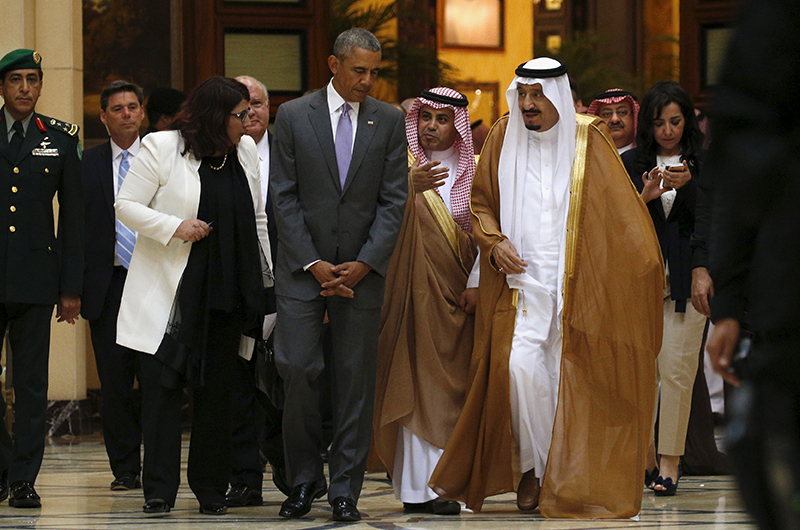At the Gulf Cooperation Council summit in Riyadh on April 21, US President Barack Obama will be looking to provide reassurances that the United States remains committed to the security of the region, even as his administration upholds the Iran nuclear agreement, which many of the United States’ Gulf partners see as undermining their interests and ceding too much power to the Islamic Republic. Past efforts at such assurances have included promises of military equipment, including missile defense, but these solutions fall short on addressing the GCC member states’ core concern: Iran’s malign influence in the region. Emboldened by the economic windfall borne out of the lifting of sanctions from the nuclear deal, Iran is upending the regional balance of power and expanding its sway in Yemen, Iraq, Syria, and elsewhere.
At the GCC summit and in the future, Washington must help the GCC counter the more direct threat stemming from Iran’s malign influence. The most significant strategic challenge for the United States going forward in the region is simultaneously implementing the nuclear agreement (if that remains the intention of future administrations) while pushing back against Iran in other ways. While difficult, such a balancing act can be achieved by taking the three following steps:
First, Washington must take advantage of Iranian missteps to reapply economic pressure, slowly choking off access to resources it could use to fuel its regional ambitions. The Iran nuclear deal provides the Islamic Republic with sanctions relief for cooperation on nuclear matters, but Washington retains the right to sanction Iran for ballistic missile tests, state support for terrorism, human rights abuses, and other activities not explicitly covered by the deal. The international community loosened the economic noose, but Tehran has kept itself on the gallows as it continues to engage in proactive behavior, including the testing of ballistic missiles. Rather than go out of its way to ensure that Iran receives continued economic relief, Washington should aggressively seize on Iran’s actions to reassert economic leverage.
Second, Washington can increase intelligence sharing on matters related to Iranian Quds Force operatives active throughout the Middle East. It can also work with its partners to help roll up the most threatening of these covert networks.
Third, Washington and the GCC must agree on a country-by-country approach for limiting Iran’s influence beyond its borders. In Yemen, Washington should promise greater cooperation with GCC special operations and naval forces to step up interdictions of Iranian arms shipments to Houthi rebels.
In Iraq, the United States and its Gulf partners must work together to demonstrate long-term commitment to Iraq’s sustainability and success. They should not, and indeed cannot, deny Iran any role in the neighboring state. Together, they can show the Iraqi government that it has a viable alternative to subjugation under excessive Iranian influence.
Finally, and most critically, the United States needs to demonstrate resolve in addressing the Syrian civil war in a way that does not simply turn control of the country back over to Bashar al-Assad and his supporters in Tehran. As experts and politicians from both sides of the aisle have repeatedly recommended, this will require greater involvement in Syria, including the establishment of a no-fly zone, safety corridors for hosting refugees, and training rebel forces. The Obama administration has resisted these measures, but the next US President should quickly implement them.
Washington must carefully calibrate its approach as it pursues these initiatives. With growing numbers of US forces back in the region, it is once again vulnerable to retribution from Iranian-backed Shi’ite militias and terror groups. In addition, if the United States hopes to keep the nuclear deal in place, it must meticulously abide by its letter. Yet, within these constraints, there is much the United States and its partners can do to constrain Iran’s hegemonic ambitions.
Even as it takes the minimum steps necessary to remain in compliance with the nuclear accord, Tehran vigorously competes with the United States and its partners. There is no reason that Washington cannot do the same.
Matthew Kroenig is a Nonresident Senior Fellow at the Atlantic Council’s Scowcroft Center for Strategy and Security, an associate professor of government and foreign service, and a former adviser on Iran policy in the Office of the Secretary of Defense.
Image: US President Barack Obama and Saudi King Salman (right) walk together following their meeting at Erga Palace in Riyadh, Saudi Arabia, on April 20. (Reuters/Kevin Lamarque)
